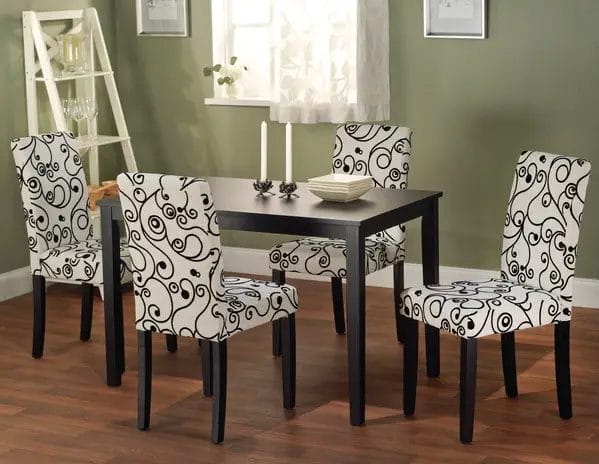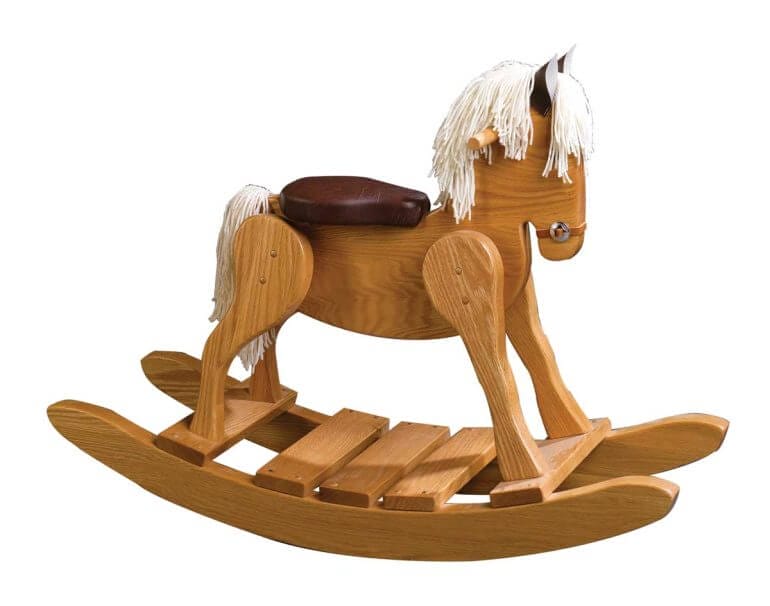Looking to add some extra comfort to your wooden chair? Adding a padded seat is a simple and effective solution. Whether you’re refurbishing an old chair or customizing a new one, a padded seat can provide much-needed cushioning and support. In this guide, we’ll show you step-by-step how to add a padded seat to a wooden chair, using basic materials and tools. So, say goodbye to uncomfortable seating and hello to a more inviting and cozy chair!

Step-by-Step Guide to Adding a Padded Seat to Your Chair
Are you tired of sitting on a hard chair all day long? Adding a padded seat can make a world of difference in terms of comfort. Whether you want to update an old chair or simply enhance the comfort of your current one, this step-by-step guide will show you how to add a padded seat to your chair with ease.

Materials You’ll Need:
- Chair
- Plywood sheet
- Foam padding
- Fabric of your choice
- Staple gun
- Scissors
- Measuring tape
- Screwdriver
Step 1: Remove the Existing Seat
The first step is to remove the existing seat from your chair. Flip the chair upside down and use a screwdriver to unscrew the seat from the base. Set the screws aside as you will need them later.
Step 2: Measure and Cut the Plywood
Take a plywood sheet and measure the dimensions of the seat base. Use a measuring tape to ensure accurate measurements. Once you have the measurements, mark them on the plywood sheet and cut it using a saw or a jigsaw.
Step 3: Cut the Foam Padding
Next, take the foam padding and place the plywood sheet on top of it. Trace the outline of the plywood onto the foam and use scissors to cut along the marked lines. Make sure to cut the foam slightly larger than the plywood to allow for a snug fit.
Step 4: Attach the Foam to the Plywood
Using a staple gun, secure the foam padding to the plywood. Start by stapling the center of each side and then work your way towards the corners. Make sure the foam is taut and smooth as you staple it down.
Step 5: Choose and Cut Your Fabric
Now it’s time to choose your fabric. Select a fabric that complements the design of your chair and measure it according to the dimensions of the plywood. Leave a few extra inches on each side to ensure you have enough fabric to wrap around the seat.
Step 6: Secure the Fabric
Place the fabric face down on a flat surface and center the padded plywood seat on top of it. Pull the fabric tightly over the seat and use the staple gun to secure it in place. Start by stapling the center of each side and then work your way towards the corners, pulling the fabric taut as you go.
Step 7: Trim Excess Fabric
Once the fabric is securely stapled, trim any excess fabric using scissors. Be careful not to cut too close to the staples, as it may cause the fabric to loosen over time.
Step 8: Reattach the Seat to the Chair
Lastly, reattach the newly padded seat to the chair base. Line up the screw holes on the plywood with the holes on the chair base and use a screwdriver to tighten the screws.
Summary
Adding a padded seat to your chair is a simple and cost-effective way to improve comfort. By following this step-by-step guide, you can easily transform your chair into a more comfortable seating option. Remember to choose a fabric that suits your style and enjoy sitting on your newly padded chair!

Exploring Different Upholstery Options for Wooden Chair Seats
Choosing the right upholstery for your wooden chair seats can greatly enhance their comfort and aesthetic appeal. With a variety of options available, it’s important to consider factors such as durability, style, and maintenance when making your selection. In this section, we will delve into some popular upholstery choices and explore their unique features and benefits.
Fabric Upholstery
Fabric upholstery offers a wide range of choices in terms of colors, patterns, and textures, making it a versatile option for wooden chair seats. From natural fibers like cotton and linen to synthetic materials such as polyester and nylon, fabric upholstery allows you to find a perfect match for your chair’s style and décor.
In addition to its aesthetic appeal, fabric upholstery provides a comfortable seating experience. It offers a soft and cushioned feel, making it ideal for chairs that are frequently used for extended periods. Furthermore, fabric upholstery is generally easy to clean and maintain with regular vacuuming and occasional spot cleaning.
Leather Upholstery
For a sophisticated and elegant look, leather upholstery is an excellent choice for wooden chair seats. Leather offers a timeless appeal and adds a touch of luxury to any space. Its natural durability and resistance to wear make it a suitable option for chairs that receive heavy use.
Leather upholstery is also easy to clean and maintain. A simple wipe-down with a damp cloth can remove most spills and stains, making it a practical choice for households with young children or pets. Furthermore, leather develops a beautiful patina over time, adding character and charm to your chairs.
Vinyl Upholstery
If you’re looking for a budget-friendly option that mimics the look of leather, vinyl upholstery is worth considering. Vinyl offers a similar appearance to genuine leather at a fraction of the cost. It is also a durable and low-maintenance choice for wooden chair seats.
One of the key advantages of vinyl upholstery is its resistance to moisture and stains. It is highly suitable for chairs in high-traffic areas or spaces where spills are common. Additionally, vinyl upholstery is easy to clean with a mild soap and water solution, making it ideal for busy households.
Woven Upholstery
For a unique and textured look, woven upholstery can be a great option for wooden chair seats. Woven fabrics are made by interlacing different threads or fibers, creating visually appealing patterns and designs. Common types of woven upholstery include jacquard, damask, and tapestry.
Woven upholstery offers excellent durability and can withstand regular use. Its intricate patterns and textures can add visual interest and depth to your chairs, making them stand out as focal points in your space. With proper care and maintenance, woven upholstery can last for many years.
When it comes to upholstering wooden chair seats, the options are virtually endless. Whether you prefer the softness and versatility of fabric, the timeless elegance of leather, the affordability of vinyl, or the unique textures of woven upholstery, each choice brings its own set of advantages. Consider your specific needs and preferences, as well as the overall style of your space, to select the perfect upholstery option that will not only enhance the comfort of your chairs but also elevate the overall aesthetic appeal of your home.

Enhancing Comfort and Style: Adding a Cushion to Your Wooden Chair
Wooden chairs are known for their durability and timeless appeal. However, they often lack the comfort that padded chairs provide. Fortunately, you can easily enhance both the comfort and style of your wooden chair by adding a cushion. This simple addition not only makes sitting more comfortable but also adds a touch of elegance to your furniture.
Choosing the Right Cushion
When selecting a cushion for your wooden chair, it’s important to consider both comfort and style. Here are a few factors to keep in mind:
- Thickness: Opt for a cushion with adequate thickness to provide optimum comfort. A cushion that is too thin may not provide sufficient support, while one that is too thick can make sitting uncomfortable.
- Material: Choose a cushion made from high-quality and durable fabric that complements the style of your chair. Options such as cotton, linen, or velvet can add a touch of luxury to your seating.
- Color and Pattern: Consider the existing color scheme and décor of the room where the chair is placed. Select a cushion that either blends seamlessly with the surroundings or adds a pop of color for an eye-catching contrast.
Attaching the Cushion
Once you have chosen the perfect cushion for your wooden chair, it’s time to attach it securely. Follow these steps for a hassle-free installation:
- Measure: Begin by measuring the dimensions of your chair seat. This will help you select the right-sized cushion.
- Clean the Chair: Before attaching the cushion, thoroughly clean the wooden chair to remove any dust, debris, or stains.
- Fastening Options: There are several ways to secure the cushion to the chair, including ties, Velcro, or adhesive straps. Choose the method that works best for your chair and provides a secure attachment.
- Positioning: Place the cushion on the seat and adjust it until it sits evenly and comfortably. Ensure that it aligns perfectly with the chair’s dimensions.
- Secure the Cushion: Use the chosen fastening method to secure the cushion tightly to the chair. Double-check that it doesn’t shift or slip during use.
Benefits of Adding a Cushion
Adding a cushion to your wooden chair offers numerous benefits that go beyond just comfort:
- Improved Comfort: A cushion provides an extra layer of padding, making sitting for extended periods more comfortable and enjoyable.
- Enhanced Style: By choosing a cushion that complements your chair and room decor, you can elevate the overall aesthetic appeal of your space.
- Protects the Chair: Cushions can help protect the wooden chair’s surface from scratches, spills, and general wear and tear, prolonging its lifespan.
- Versatility: Cushions are versatile and can be easily swapped out or replaced, allowing you to change the look of your chair without investing in new furniture.
- Personalized Comfort: Different individuals have different comfort preferences. Adding a cushion to your wooden chair allows you to customize the seat to your liking.
In summary, the addition of a cushion to your wooden chair offers a multitude of benefits. Not only does it enhance the comfort level, but it also adds a touch of style and elegance to your seating arrangement. By choosing the right cushion and securely attaching it to your chair, you can transform your wooden chair into a cozy and stylish seating option. So, why settle for uncomfortable seating when you can effortlessly elevate the comfort and style of your wooden chair with a simple cushion?
Tips and Tricks for Properly Securing a Padded Seat to Your Chair
Having a comfortable and secure padded seat on your chair can make a significant difference in your overall sitting experience. Whether you have an office chair, dining chair, or any other type of chair with a cushioned seat, it is essential to ensure that the padding stays in place and doesn’t slide or shift. In this section, we will provide you with some helpful tips and tricks to properly secure a padded seat to your chair.
1. Check the Attachment Method
The first step in securing a padded seat is to determine the attachment method. Different chairs may have various ways of securing the cushion to the chair frame. Common attachment methods include ties, hook-and-loop fasteners, snaps, or adhesive backing. Understand the attachment method used in your chair and proceed accordingly.
2. Tighten the Ties
If your chair has ties that secure the cushion, make sure they are tight and properly fastened. Start by aligning the cushion with the chair seat and then pull the ties tightly, ensuring that all the ties are of equal length. Tie the ends securely in a knot or a bow, depending on the design, to prevent any movement or slipping of the cushion.
3. Utilize Hook-and-Loop Fasteners
For chairs equipped with hook-and-loop fasteners, such as Velcro, carefully align the corresponding fastener strips on the chair seat and the cushion. Press the fasteners together firmly to ensure a secure bond. Adjust the position of the cushion as needed, keeping it centered on the chair seat.
4. Secure with Snaps
Chairs that employ snap closures for securing the cushion require a slightly different approach. Line up the snaps on the cushion with the ones on the chair seat and press them firmly together until they snap into place. Ensure that all the snaps are securely fastened to prevent any movement of the cushion.
5. Consider Adhesive Backing
If your chair cushion has adhesive backing, remove the protective film to expose the adhesive surface. Carefully position the cushion on the chair seat while avoiding any misalignment. Press down firmly on the cushion to allow the adhesive to bond with the chair surface. Make sure to follow the manufacturer’s instructions for best results.
6. Use Non-Slip Mats or Grippers
If your chair’s padded seat tends to slide or shift even with proper attachment, you can consider using non-slip mats or grippers. These can be placed between the chair seat and the cushion to provide additional grip and stability. Non-slip mats or grippers are particularly helpful on smooth or slippery surfaces.
7. Regular Maintenance
To ensure that your padded seat remains secure over time, it is essential to perform regular maintenance. Check the attachment points periodically to make sure they are still intact and secure. If any ties, fasteners, or snaps are damaged or worn out, replace them promptly to maintain the proper attachment of the cushion.
8. Adjust and Reattach as Needed
Sometimes, despite your best efforts, a padded seat may require readjustment or reattachment. If you notice any movement or discomfort while sitting, take the time to adjust the cushion and ensure it is properly secured to the chair. This will guarantee your continued comfort and prevent any potential accidents caused by an unstable seat.
By following these tips and tricks, you can effectively secure a padded seat to your chair and enjoy a comfortable and stable seating experience. Remember to choose the appropriate method of attachment for your chair type and regularly inspect and maintain the secure fastening of the cushion. Now you can sit back, relax, and enjoy your chair without worrying about the cushion shifting or sliding!
FAQs
1. How can I add a padded seat to a wooden chair?
To add a padded seat to a wooden chair, start by measuring the seat area and then cut a piece of foam to fit. Next, cover the foam with fabric and secure it to the seat using a staple gun or upholstery nails. Finally, attach the padded seat to the wooden chair using screws or adhesive, ensuring it is securely in place.
2. What materials are needed to add a padded seat to a wooden chair?
To add a padded seat to a wooden chair, you will need foam padding, fabric of your choice, a staple gun or upholstery nails, and screws or adhesive to attach the padded seat to the chair.
3. Can I remove the padded seat from the wooden chair later if needed?
Yes, the padded seat can be removed from the wooden chair if needed. Simply unscrew or detach the screws or adhesive holding the padded seat in place and carefully lift it off. The chair can then be restored to its original state.
Conclusion
In conclusion, adding a padded seat to a wooden chair is a simple and effective way to enhance comfort and aesthetic appeal. By following a few easy steps, you can transform your plain wooden chair into a cozy seating option that will be a joy to sit on. Whether you choose to sew your own cushion or purchase a pre-made one, the process is relatively straightforward and requires minimal tools and materials. With the added padding, your wooden chair will provide a plush and inviting place to rest, making it an ideal addition to any living space or dining area. So, go ahead, give your wooden chair a much-needed upgrade, and enjoy the enhanced comfort it brings.